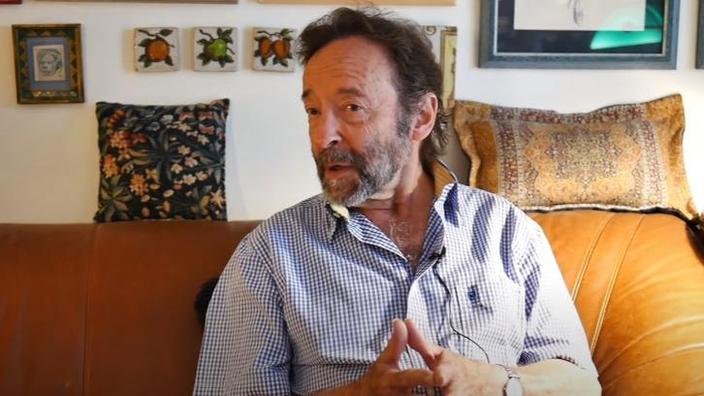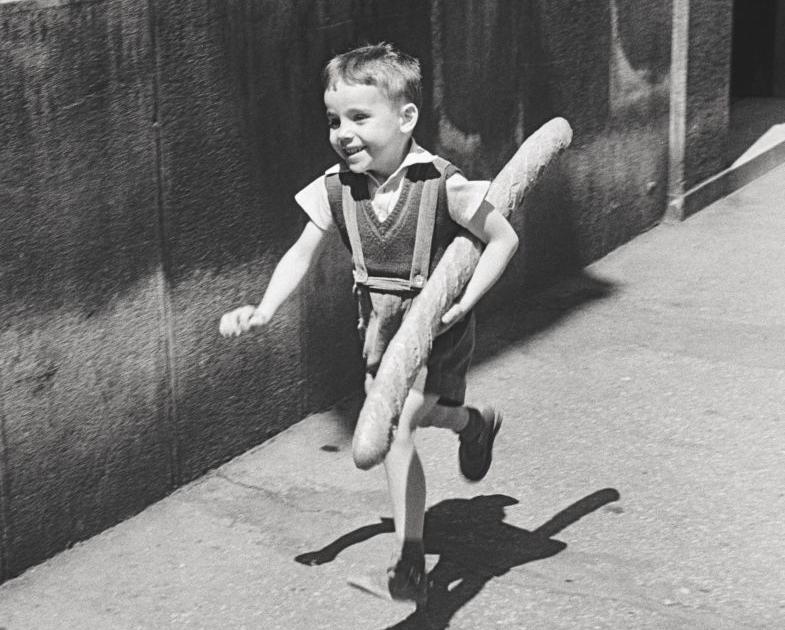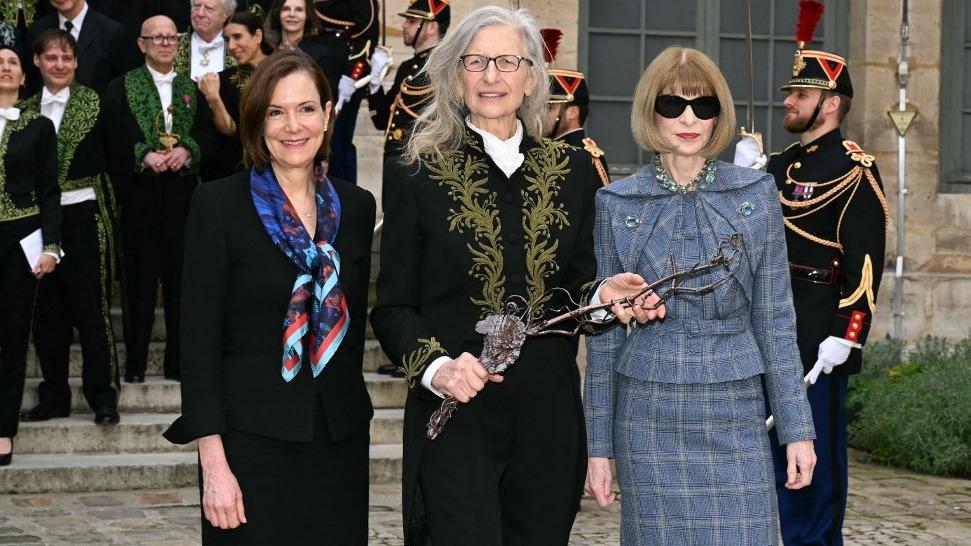Damien Le Guay is a philosopher, he teaches end-of-life ethics, and is president of the National Funeral Ethics Committee. Latest book published:
When euthanasia will be there...
(Salvator, January 20, 2022).
A man died in Paris.
That's what happens.
He died in the street.
This also happens.
He was old.
Known photographer.
One evening, on January 18, he leaves his home, walks in his neighborhood in Paris, near the Place de la République.
It's 9 p.m.
He likes to walk in the evening in the rue de Turbigo with all these young people and tourists who have come to the "City of Light".
He loves the night and those people who move about in the black and white of the evening.
And every evening, in many towns in France and Navarre, old people go out for a last walk.
Nothing special.
And then, for some mysterious reason, he falls on the sidewalk.
He falls.
There too, what could be more banal.
To read alsoWho was René Robert, the photographer who died one winter evening, on a sidewalk in Paris?
What follows is by no means ordinary, or rather if it is, that would say too much about our little ordinary cowardice and all our everyday failings.
What is it about ?
So he's on the ground.
Time passes.
People pass.
We are in winter.
It is cold.
In January, bodies can cool down to hypothermia.
And this man stays there, lying full length.
Some of the passers-by avoid him, others pretend he's not there, still others imagine he's sobering up.
One hour, two hours.
Time always passes without anyone coming to the aid of this man.
As the night progresses, the cold increases.
Three hours after the fall, passers-by come out of the surrounding bars when others come and go.
Four o'clock, five o'clock.
The night is deep and the cold is well established.
At 6:30 a.m., the firefighters finally come after receiving a call for a man “
lying on the ground, with head trauma and blood
”. When they finally arrive, this old man has been lying on the ground for nine hours in one of the most festive and lively areas of this great city. But we have to believe that the festive people were too festive, the passers-by too eager to return home, the tourists too inquisitive. Everyone looked away, or in another direction, or found it normal. Apparently it was a tramp (renamed in the administrative newspeak a "homeless") who realized the tragedy and gave the alert. If he has no fixed abode, at least he had a fixed heart within him, a vigilance of humanity with regard to others. And to be a "toothless" a "homeless" a "homeless", no onemanages to find him since then to thank him.
When we look at this drama of ordinary life differently, many subjects of neglected societies intersect.
Who takes care of the people who die in the street?
Damien LeGuay
This old man is dead.
Help arrived too late.
The cold has done its work.
His name was: René Robert.
Whether he is a photographer or not, known or not, does not change the matter.
His friend, Michel Mompontet, a journalist, related this drama of ordinary life.
He spoke about it on the networks and in the press, underlining both the "light irony" of René Robert, and his personal inability to judge indifferent passers-by.
What would he have done in such circumstances?
He didn't know.
What would we have done in such circumstances?
Let's ask the question.
Haven't we looked away many times when under a carriage door we guess the presence of a tramp?
However, he calls for vigilance: "Stop for five seconds and ask 'Are you okay?
» »
How not to be indignant?
Seen from afar, when you take a "freeze frame" or rather a stop on a news item, everything seems strange in this case.
So much commotion around, and this man no one sees.
A district with a great animation, and yet almost everywhere men and women, in the corners of the streets and on the entrances to the metro, which are invisible to our cities.
And all of us, so anxious to exist on social networks, to have a place in the digital sun, to add "likes" to "likes", don't we tend to neglect the real world and in it our neighbors of buildings, those who hang around in the streets and who don't know where to go because they don't have a house?
Yes.
It's as if the death of elephants
When we look at this drama of ordinary life differently, many subjects of neglected societies intersect. Who takes care of the people who die in the street? Let's highlight a superb association "
the collective of the dead of the street
which takes care of burying in all humanity those who are thus found in the streets of our cities and whom no one claims. And each year, this collective publishes, in a newspaper, a list of those they have taken care of. Sometimes they can't even name these people. In the list, is indicated only: "a man, died such day and who must have been about fifty years old". And every year, a ceremony is held, often in the square in front of the Council of State, so that we can all think of these invisible people of misery, who died without having been accompanied by anyone other than the members of this association. And, in their latest report, they warn politicians to “invest in ambitious policy to end homelessness. ".At the beginning of each five-year period promises are made and never kept.
Read alsoThe Lazare association celebrates ten years of roommates with the homeless with the pope
On the other hand, are we not practicing, with all these new acronyms, a kind of euphemization of social realities. One more. Thus, when we transform a "tramp" into a "homeless", we put a man in an overly restrictive category of social policies. When we transform a "beggar" who depends on us for his daily bread, into a "homeless", we insist, here too, on a parallel population of restless, festive urbanites. Each time, a single subject is put forward, as if it were the problem: the lack of housing. Anyway, people take care of it. He is supported by others. The way of naming a problem ends up restricting it, putting it away in a single and unique solution. A beggar, a tramp, a "barefoot" need us, those of the neighborhood,of our alms, of our help, of our gaze. A homeless person needs a roof. Doesn't this new way of looking at street people lead to a kind of indifference and therefore, sometimes, to little murders of indifference, which are, unfortunately, so frequent.
How can we remain united when we have to find the reasons for being one by ourselves, far from the “social obligations” that would be imposed from above?
It is clear that this effort of cohesion is struggling to settle.
Damien LeGuay
Finally, are we in solidarity?
Obviously, the famous “living together”, once celebrated as the new evidence of our societies, was a beautiful illusion.
It was a question, on the mode of horizontal fraternity, of redefining the cohesion of the groups when the imperatives of the past (Christian charity or camaraderie between fellow citizens) wither away.
How can we remain united when we have to find the reasons for being one by ourselves, far from the “social obligations” that would be imposed from above?
It is clear that this effort of cohesion is struggling to settle.
Individualism advances whenever the "constraints" from above weaken.
Tocqueville already told us this when he announced the modern withdrawal of individuals into small atoms, hermetically placed one in the city of the other.
So why take care of someone who falls in the street and ask him "are you ok?"
when the worry of this around at the edge of the pavement seems almost a strange heroism?
Therein lies the paradox: we are in an increasingly providential state (with fifty percent compulsory levies) while our societies are made up of individuals who are less and less concerned about others.
It is as if solidarity were everyone's business and not that of each one in particular.
For all these reasons, many René Roberts, most often unknown to everyone, die in our festive, restless, rich cities.
And if our politicians looked a little at the French at ground level, at sidewalk level?
Great ambition for the next presidential election.
No ?







/cloudfront-eu-central-1.images.arcpublishing.com/prisa/FS5FDPA2QFAPPP3M22RRTDN2II.jpg)